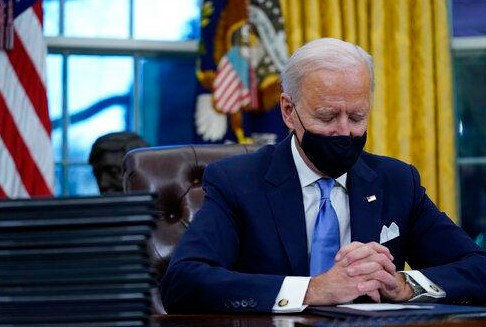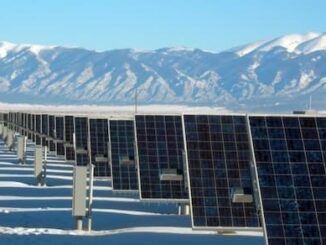
Joe Biden had a neat, nine-point plan for energy when he campaigned for president. He started putting this plan into action on his first day in the White House with the cancellation of the notorious Keystone XL pipeline and has since then continued with his tough stance on fossil fuels.
The argument that this tough stance will, in fact, benefit oil producers has been made since the campaign trail. It went like this: Biden’s fight for less oil and gas and more renewable energy will hurt U.S. oil and gas producers, but it will not reduce American demand for oil and gas, hence it will benefit the industry, just not the U.S. industry.
The argument makes sense, and there is plenty of proof: after canceling the Keystone XL, Alberta oil producers increased the amount of oil they sent to U.S. refineries by rail—a less safe method of transporting crude, by the way. Biden’s moratorium on new oil and gas leases on federal land was one of the factors that pushed oil prices higher earlier this year. And the Biden administration’s attitude to Saudi Arabia may have contributed to the Kingdom’s decision to extend its voluntary oil production cuts that contributed to the latest price rally.
That last point was recently made by Schork Group principal Stephen Schork to Fox News. Schork said that in addition to making it clear that oil and gas were no longer a priority for the government (except in negative terms), Biden’s treatment of Saudi Arabia had resulted in higher prices.
“On the closer front of what we’ve seen, the biggest impact that Biden has had on prices bullishly has been his treatment of Saudi Arabia,” Schork said. “There was [a] surprise two weeks ago when Saudi Arabia took a more hawkish view at the OPEC meeting, and oil prices surged after that surprise decision.”
But higher prices may be just the beginning of the U.S. President’s problems with the oil and gas industry. In his energy plan, Biden’s team noted the creation of millions of new jobs in clean energy and infrastructure. There is, however, not a word about the jobs that may end up lost in oil and gas. Some of these jobs are certainly transferable from the oil and gas industry to solar and wind, for instance, as we saw during the 2014 oil price crisis. Yet the question of whether all jobs will be transferable remains open.
“You’re not hurting the big guys that are doing all the development. You’re hurting these little guys that are dreaming up where no one else thought there was any oil and gas,” one U.S. oil industry executive told the AP recently, commenting on President Biden’s crusade against the oil and gas industry.
Indeed, this industry grew in new and unexpected ways thanks to the shale boom from the last couple of decades. Where before independents were few and far between, the shale revolution led to a surge in oil and gas independents, most of them, as the land manager for family-owned Kirkwood Oil & Gas quoted above said, too small to fight with the government.
Many in the industry prepared for the crusade, however, the AP reports also notes. The report quoted an executive from Devon Energy as telling investors that Devon would “roll with the punches” and that it had stocked up 500 drilling permits. Devon is unlikely to be the only one prepared.
And yet, many small players will go under. This will lead to a decline in local oil production, especially as the permits begin to run out. And this will naturally lead to even higher oil prices—and gas prices at the pump—for American consumers. Chances are this will happen before demand begins to decline permanently as EVs and renewable power generation become dominant over fossil fuel cars and power plants. This will be an unpleasant time for many, but in all fairness, nobody said the energy transition will be easy or cheap.
By Irina Slav for Oilprice.com



